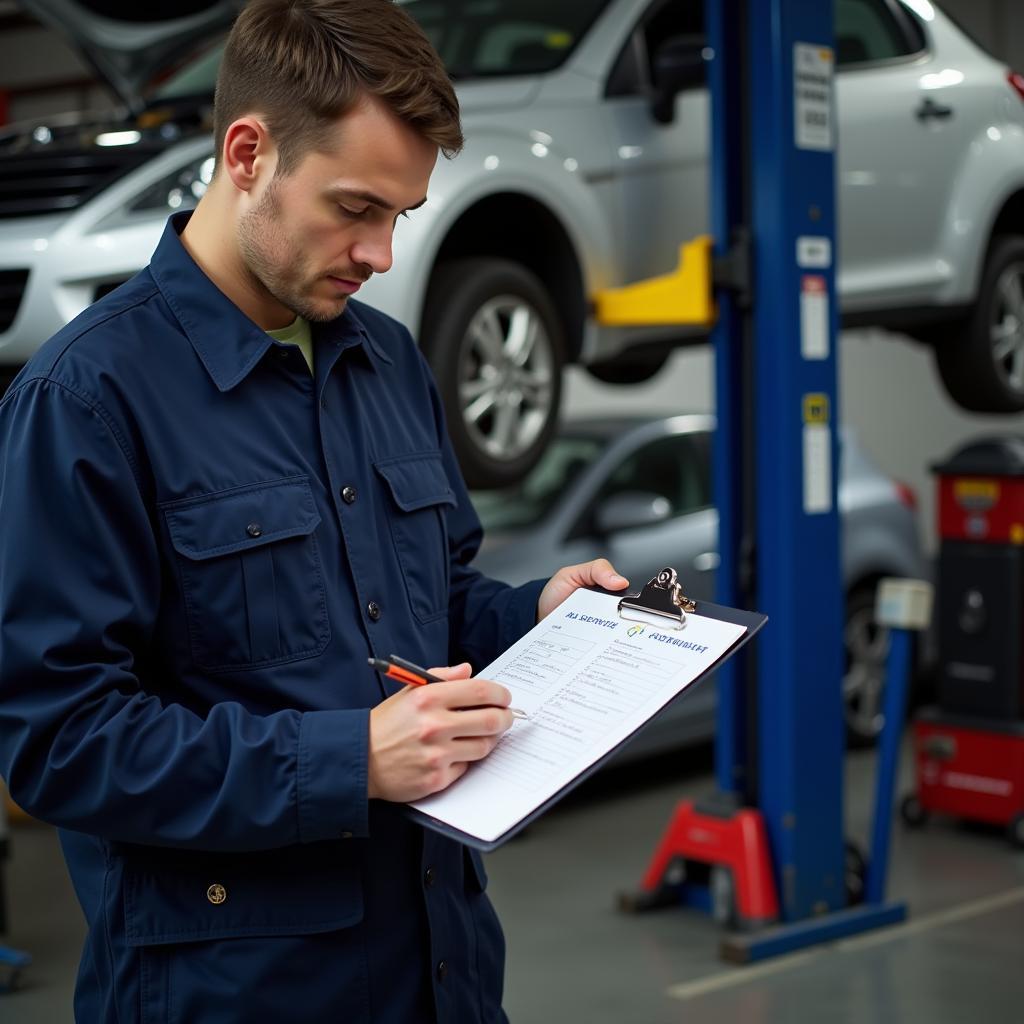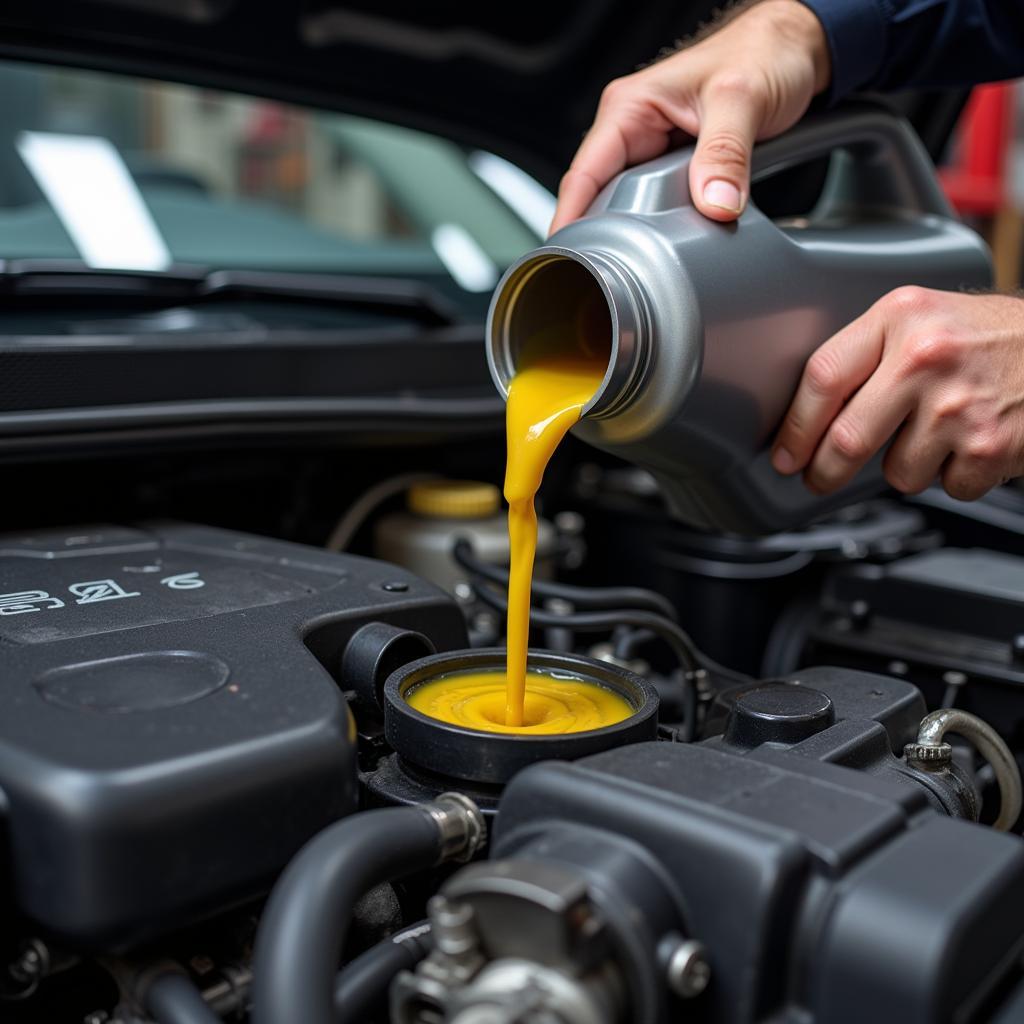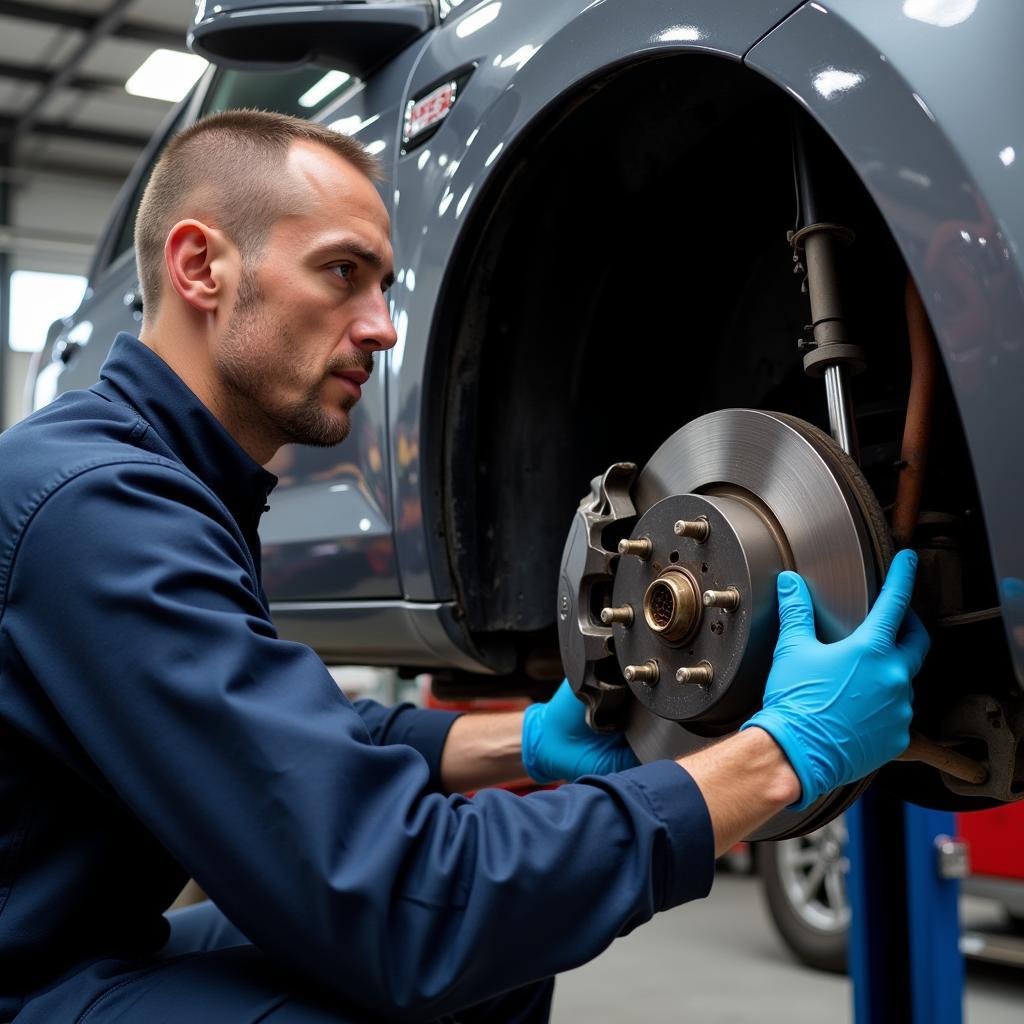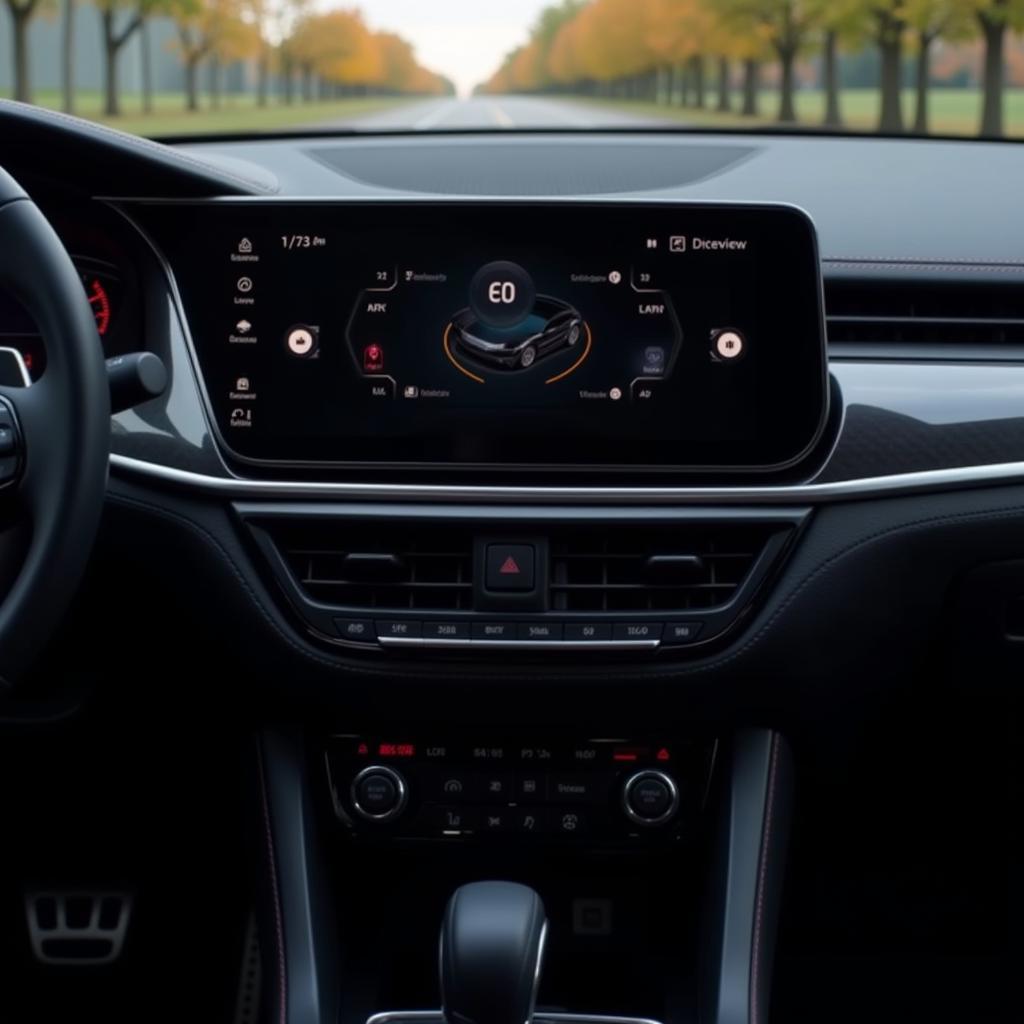What Parts Do You Need to Service a Car?
Maintaining your vehicle with regular servicing is crucial for its longevity, performance, and your safety on the road. But what exactly gets looked at when you take your car in for a service? This guide will explore the essential parts involved in a car service, helping you understand the process and make informed decisions about your vehicle’s maintenance.
 Car service checklist
Car service checklist
The Importance of Regular Car Servicing
Before diving into the specific parts, let’s understand why car servicing matters. Regular servicing ensures that your car operates at peak performance, maximizing fuel efficiency and minimizing the risk of breakdowns. It also helps identify potential issues early on, preventing costly repairs down the line.
Think of it like this: would you rather spend a small amount on regular checkups or face a hefty bill for a major surgery? The same principle applies to your car.
 Mechanic changing engine oil
Mechanic changing engine oil
Key Components Serviced in a Car
A car service encompasses a comprehensive check of various components, from the engine to the brakes. Here’s a breakdown of the key areas and parts typically addressed:
1. Engine Oil and Filter Change
Engine oil is the lifeblood of your car, lubricating moving parts, reducing friction, and preventing overheating. Over time, the oil degrades, losing its effectiveness. A car service always includes an oil and filter change, ensuring fresh oil circulates within the engine.
2. Air Filter Replacement
The air filter prevents dust, debris, and other contaminants from entering the engine. A clogged air filter restricts airflow, impacting engine performance and fuel efficiency. During a service, the air filter is inspected and replaced if necessary.
3. Spark Plugs Inspection
Spark plugs ignite the air-fuel mixture in the engine cylinders, initiating combustion. Worn-out spark plugs can cause misfires, reduced power, and decreased fuel efficiency. Mechanics will typically inspect the spark plugs and replace them based on their condition and the vehicle manufacturer’s recommendations.
 Mechanic inspecting car brake system
Mechanic inspecting car brake system
4. Brake System Check
Your car’s braking system is paramount for safety. A service involves a thorough inspection of the brake pads, rotors, calipers, and brake fluid levels. Worn-out brake components are replaced to ensure optimal braking performance and prevent accidents.
5. Fluid Level Check and Top-up
Various fluids are essential for the smooth operation of your car, including coolant, transmission fluid, power steering fluid, and windshield washer fluid. During a service, mechanics check the levels of these fluids and top them up as needed.
Frequency of Car Servicing
The frequency of car servicing depends on factors like your car’s make and model, age, mileage, and driving conditions. It’s best to consult your owner’s manual for manufacturer-recommended service intervals. As a general guideline, most modern cars benefit from servicing every 12,000 miles or once a year, whichever comes first.
[should i service my car at dealership]
Benefits of Regular Car Service
Regular car servicing offers numerous benefits, including:
-
Enhanced Safety: A well-maintained car is a safer car. Regular checks and maintenance of brakes, tires, lights, and other crucial components ensure your safety on the road.
-
Improved Performance: Fresh oil, clean filters, and properly functioning parts contribute to optimal engine performance, smoother handling, and a more enjoyable driving experience.
-
Increased Fuel Efficiency: A well-tuned engine with clean filters and properly inflated tires can significantly improve your car’s fuel efficiency, saving you money at the pump.
-
Preventative Maintenance: Regular servicing allows mechanics to identify potential issues early on, preventing them from escalating into major problems that require costly repairs.
-
Extended Vehicle Lifespan: Taking good care of your car through regular servicing can significantly extend its lifespan, allowing you to enjoy it for many years to come.
Conclusion
Understanding “What Parts Do You Need To Service A Car” empowers you to take control of your vehicle’s maintenance and make informed decisions about its upkeep. By adhering to a regular servicing schedule and addressing any issues promptly, you can ensure your car remains safe, reliable, and performs at its best for years to come. Remember, a well-maintained car is not just a mode of transport but an investment worth protecting.
FAQ
1. How much does a car service typically cost?
The cost of a car service varies depending on the type of service, your car’s make and model, and the location of the service center. It’s best to contact different service centers to get quotes and compare prices.
2. Can I service my car myself?
While some basic maintenance tasks can be performed at home, it’s generally recommended to have your car serviced by qualified mechanics. They have the expertise, tools, and equipment to diagnose and address issues effectively.
3. What happens if I skip a car service?
Skipping scheduled car services can lead to a decline in your car’s performance, fuel efficiency, and safety. It can also increase the risk of more serious and costly repairs in the long run.
4. How do I choose a reliable car service center?
Look for service centers with certified mechanics, positive customer reviews, and transparent pricing. Don’t hesitate to ask for recommendations from friends or family.
5. What is the difference between a basic and a full car service?
A basic car service typically includes an oil and filter change, fluid top-ups, and a visual inspection of key components. A full car service is more comprehensive and includes additional checks, adjustments, and replacements as needed.
[what about care services]
For more information and resources on car servicing, visit our website or contact us today. We’re here to help you keep your car running smoothly!
Need assistance with your car’s service needs?
Contact us via WhatsApp: +1(641)206-8880, Email: [email protected]. Our dedicated customer support team is available 24/7 to assist you.

